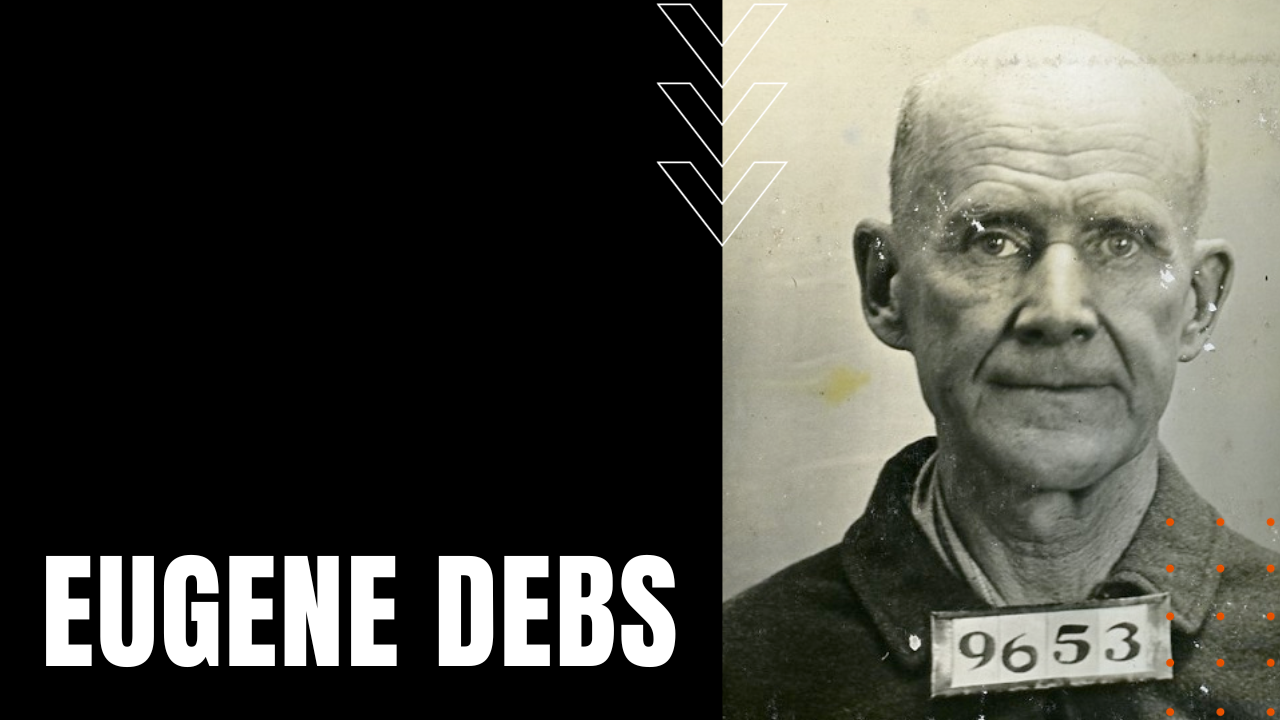Eugene Debs

Born in 1855 Terre Haute Indiana, Eugene V. Debs began his career as a railroad worker, rising up to become a clear voice in America’s budding labor movement, which accelerated throughout the early decades of the 20th century. After founding the Brotherhood of Locomotive Firemen, in 1893, Debs stepped up yet again to found the American Railway Union or ARU, which became the most powerful American labor union of its day.
Pullman Strike Bloodbath
A year later, Debs and the ARU initiated a successful strike against the Pullman Palace Car Company, in response to wage cuts without a commensurate reduction of worker rents in the company town of of Pullman Illinois, which disrupted rail traffic in 27 states west of Chicago, giving rise to violent clashes with law enforcement, culminating in a July 7th bloodbath, when National guardsmen opened fire on protestors, killing an estimated 70 strikers, while injuring 57 more.
Serves Time
Given a six-month sentence for violating a court injunction against the strike, while in prison, Debs became a committed Socialist after studying Socialist primers such as Karl Marx’ Communist Manifesto, going on to found the Socialist Party of America after his release from prison. During the high water years of the Progressive Era—all at a time when conservative Americans began to fear striking workers and the Socialist, Communist sympathies pandemic within immigrant enclaves of the early 20th century—Debs ran for president as the party’s Socialist candidate from 1900 to 1920, winning nearly one million votes during the presidential election of 1912.
Receives Presidential Pardon
A staunch anti-capitalist, Debs used his fiery rhetoric to preach his belief that American workers should control the production of products during the peak years of the American Industrial Revolution, and when America entered the First World War, his many anti-war speeches landed him a 10-year prison sentence under the Sedition Act of 1918. Pardoned in 1921 by President Warren G. Harding, Debs received a hero’s welcome home to Terre Haute, replete with marching bands and a crowd of some 50,000 supporters. Nominated for the Nobel Peace Prize by Finnish Socialist Karl H. Wiik, Debs passed away at Lindlahr Sanitarium in Elmhurst Illinois, after years of declining health caused by his prison confinement, making the life and activism of Eugene Debs, an early lodestar for left-leaning Americans.
